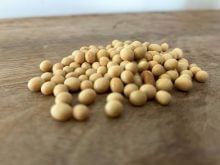CHICAGO, Jan 12 (Reuters) – Chicago Mercantile Exchange lean hog contracts closed higher on Tuesday, strengthened by short-covering and speculative buying in anticipation of tighter seasonal supplies, traders said.
Spot February finished 2.200 cents per lb higher at 61.900 cents, and April ended 1.825 cents higher at 67.300 cents.
“Packer margins are strong and I am also hearing that numbers of market-ready hogs appear to be tight for next week,” said AgFutures Managed Investment hog futures trader Tom Cawthorne.
Packers in Iowa/Minnesota on Tuesday morning paid $51.28 for hogs, down 39 cents from Monday in light volume.
Read Also

Federal budget shows remaining disconnect between agriculture, policymakers, panelists say
Canada’s agriculture sector is still disconnected from policymakers in some ways, say panelists at a CAPI webinar
Meanwhile, wholesalers bought pork at $71.25 per cwt, which was 78 cents higher than on Monday, driven by the almost $6 spike in rib costs, the U.S. Department of Agriculture said.
Smithfield Foods Inc hog processing plants resumed normal operations on Tuesday after they were idled by technical issues on Monday.
Packers on Tuesday processed 439,000 hogs, 125,000 more than on Monday, based on government estimates.
LOWER LIVE CATTLE FUTURES
Price uncertainty for the bulk of unsold cash cattle and the morning’s mixed-rather-than-higher wholesale beef values weighed on CME live cattle futures, traders said.
February live cattle closed 0.625 cent per lb lower at 131.600 cents, and April ended down 0.350 cent to 132.700 cents.
On Tuesday morning, a small number of market-ready, or cash, cattle in Kansas sold at $133 per cwt, steady with a week ago, said feedlot sources. They added that Nebraska cash cattle traded lightly at $134, up $2 from last week.
Tuesday morning’s wholesale choice beef price, or cutout, gained 51 cents per cwt from Monday to $235.83. Select cuts fell $1.37 to $227.70, based on USDA data.
The cutout could soon fall sharply after surging more $40 per cwt in recent weeks, which could hurt grocer demand, said West Oak Commodities analyst Tom Tippens.
Funds sold the February contract and simultaneously bought deferred months, in conjunction with the Standard & Poor’s Goldman Sachs Commodity Index (S&PGSCI).
Tuesday was the third of five days of the process known as the S&PGSCI “roll.”
At the same time, some index funds bought CME livestock contracts as part of their annual rebalancing of commodity holdings.
CME feeder cattle benefited from their discounts to the exchange’s feeder cattle index for Jan. 11 at 164.51 cents.
January feeders, which will expire on Jan. 28, closed up 0.775 cent per lb to 160.225 cents.














